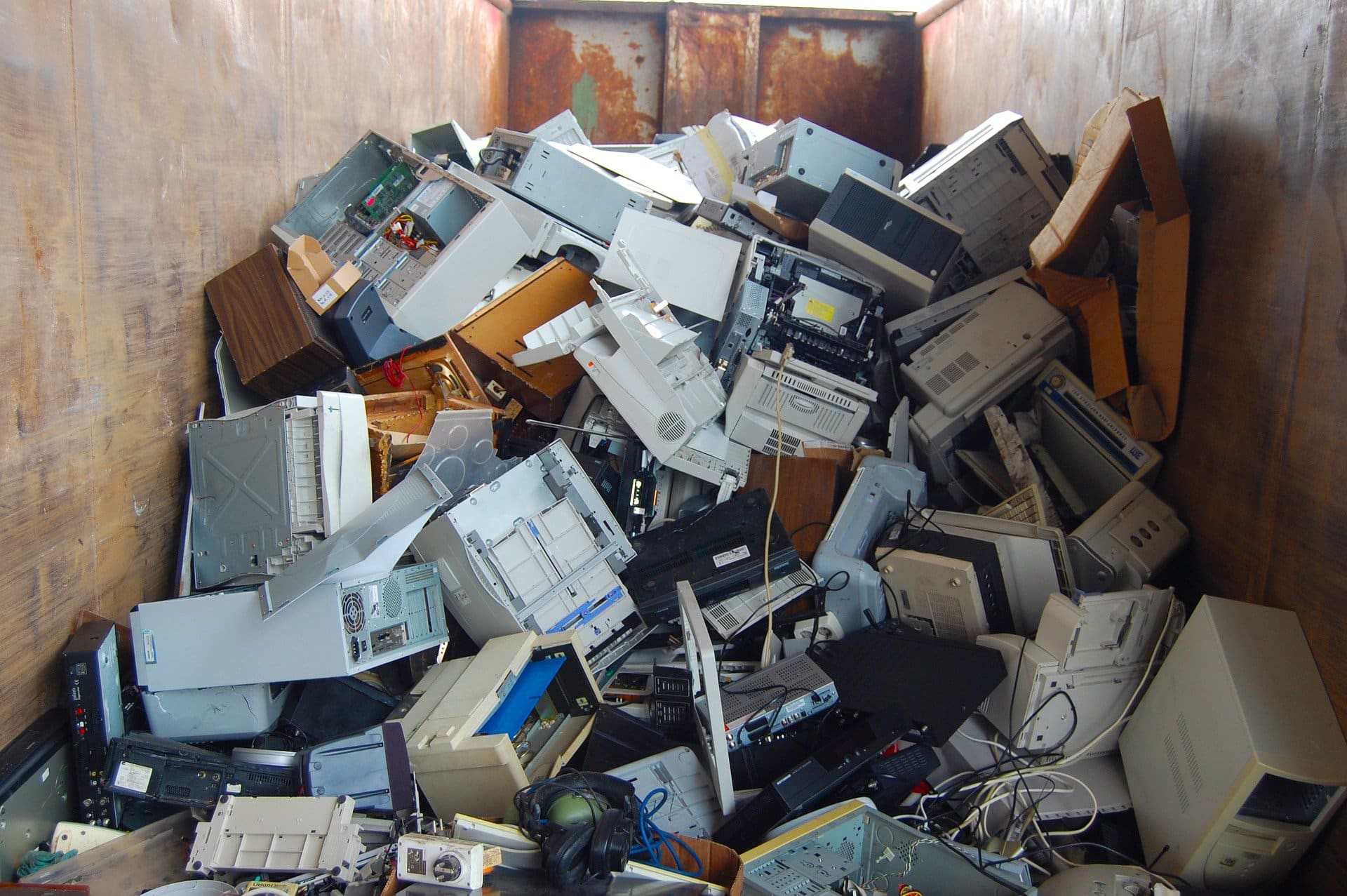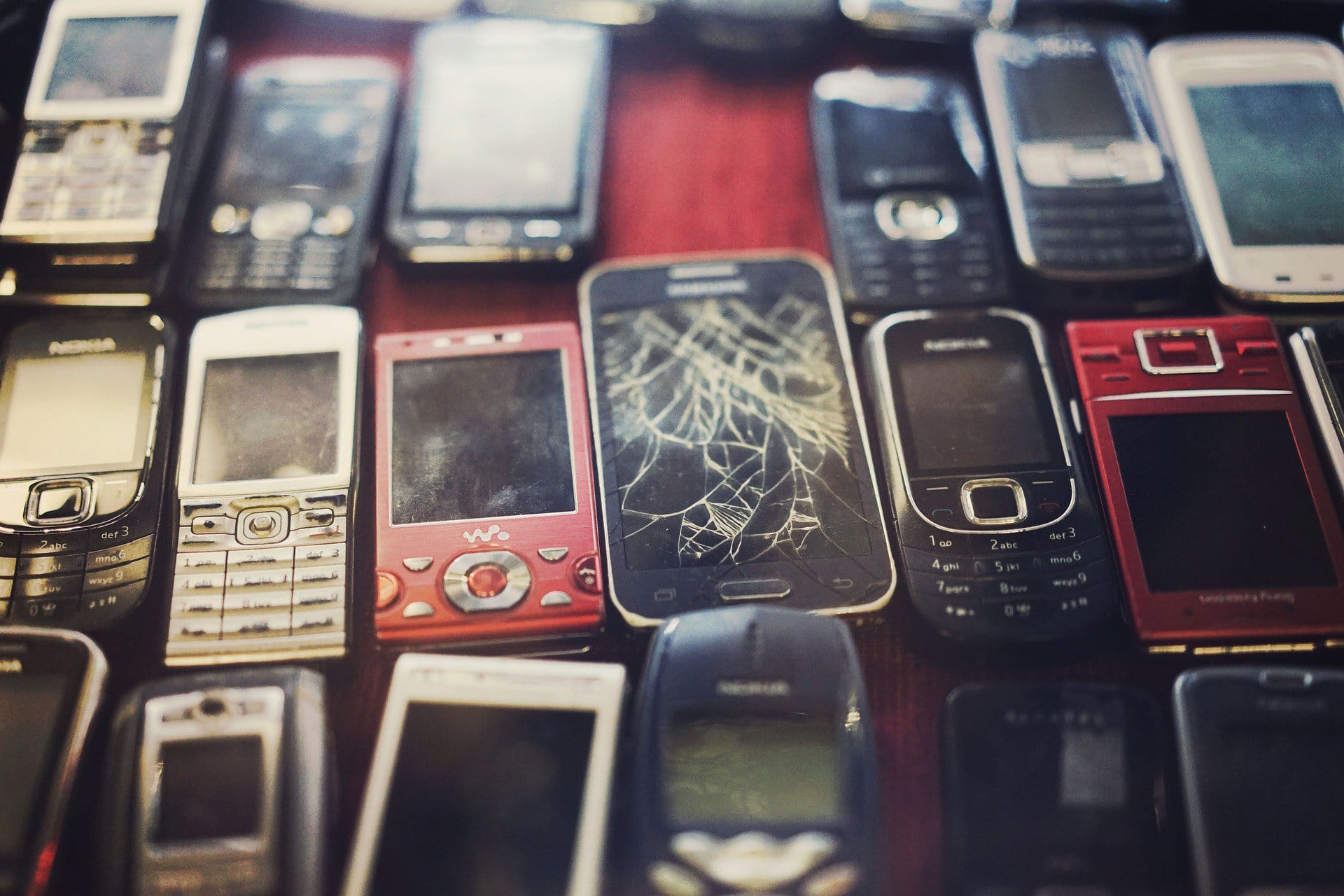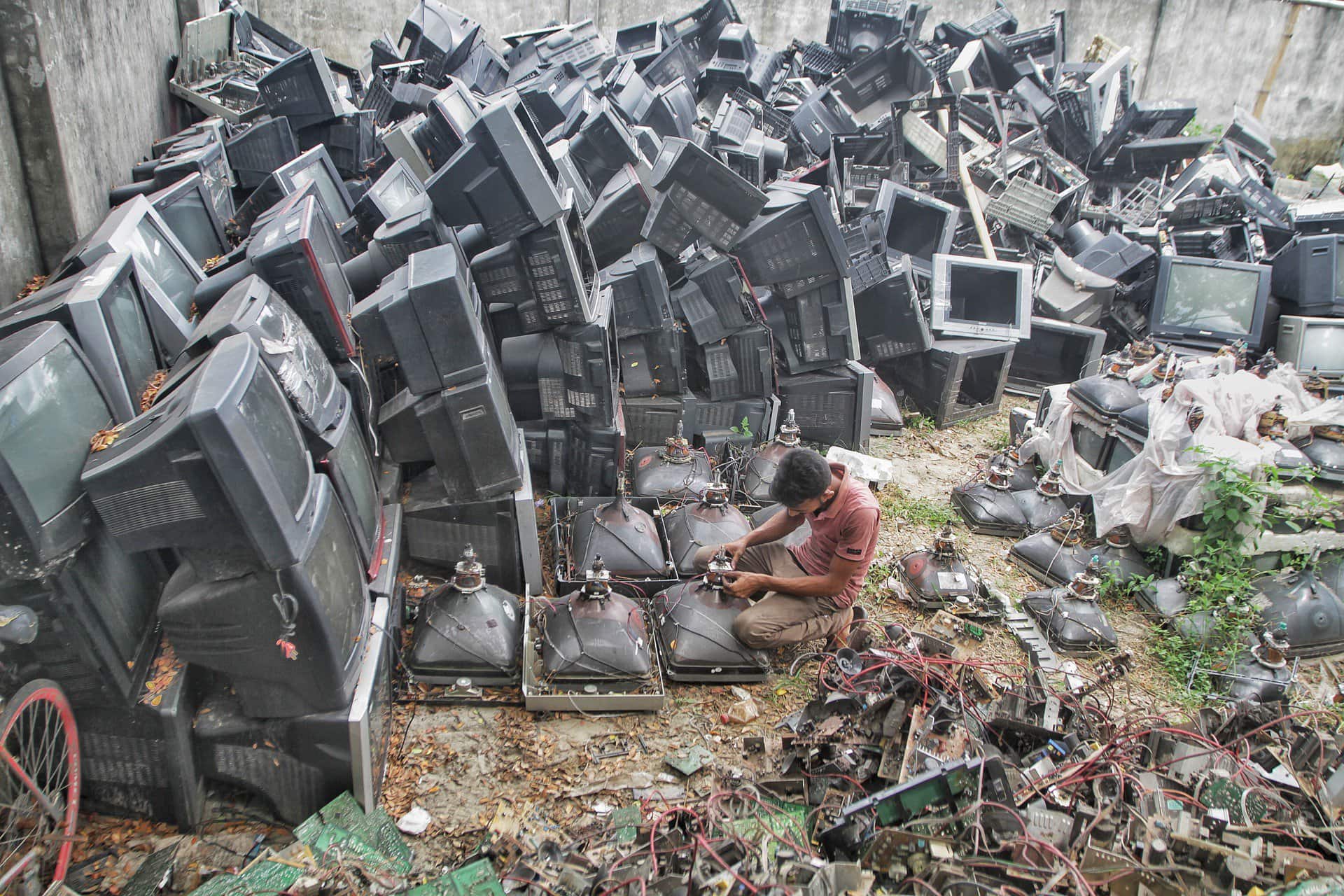
In this article, we will discuss what e-waste is and how best to dispose of it. We will talk about why e-waste is more difficult to dispose of and where you can dispose of any e-waste should you have any. Also, we will discuss why it is important to properly dispose of e-waste and the effects of not doing so could have.
E-waste or electronic waste is electronic appliances or products that are at the end of their life. E-waste consists of Mobile Phones, Computers, TVs, Printers, Stereos, Fridges, Freezers and more. But what all e-waste has in common are the materials that they are made of e.g., batteries. This is hazardous waste.
On average more than 120,000 metric tonnes of household electronic waste is collected in the UK per year. In 2021 the UK produced 148,134.09 tonnes of e-waste. This is equal to 15 Eiffel towers, according to https://www.okdo.com/blog/e-waste-crisis-in-the-uk-infographic/.

Electronic waste is difficult to dispose of due to the hazardous materials used in its creation. Most electronics contain toxic heavy metals like lead, mercury, cadmium, and beryllium. As well as precious metals like gold, and brominated flame retardants. Due to all these, it is impossible to recycle electronics as a single item as you can cans or bottles. With the export of e-waste, it becomes more difficult to recycle due to unsafe working conditions. E-waste is, according to the environment agency, the fastest-growing stream of waste in the UK.
E-waste that is not disposed of correctly is a problem because of the effects toxic materials have on the environment and nearby workers. These toxic materials seep into the ground and expose the environment and people to contaminants that can lead to health problems, such as cancer.
On the estimation of the e-waste that we generate,40% of it is illegally exported to other countries and dumped. On average it is estimated that of the e-waste that we produce, we recycle only 17% of it.

Recycling e-waste means that it is possible to recover materials such as Gold, Copper, Glass, Aluminium, Lithium, Plastic and more. This means that there is less of a negative impact on the environment. This is because of the minimising of the number of hazardous materials. It also means that the materials can return to the supply chain. Thus the need for fewer raw resources for processing.
The WEEE (Waste Electrical and Electronic Equipment) system regulations place an obligation on distributors to provide customers with a take-back system. This is where you can dispose of your e-waste free of charge. You could take your electrical waste to a waste recycling centre. Depending on where you go you may be charged. Or, York recycling Service can take any electrical waste you have. We have an IT & Computer recycling service, which saves you time in knowing where best can recycle your e-waste. Something to note is that most supermarkets will take batteries to recycle.
In conclusion, this article has discussed why e-waste is so difficult to recycle. Why it is important to do so and what the effects of not doing so are. We have also discussed what e-waste is and how you can dispose of yours. You can Click Here to see prices and book online so that you can get rid of any of your waste.